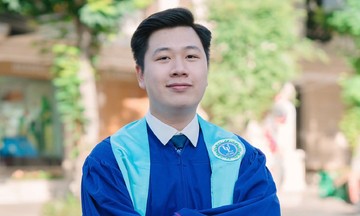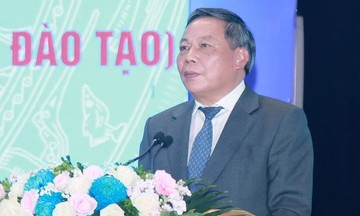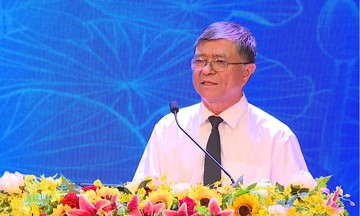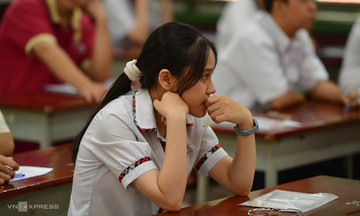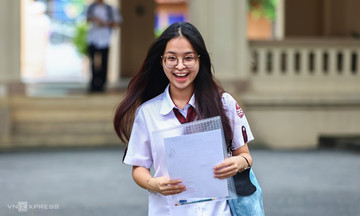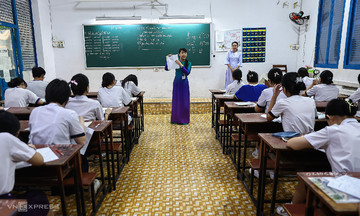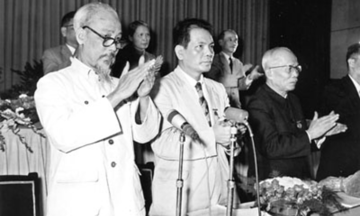Professor Than, former Head of the Mathematics and Informatics Department at the Vietnam Institute of Educational Sciences, shared this view at a seminar on innovating mathematics teaching and learning, organized by the Vietnam Institute for Advanced Study in Mathematics (VIASM) on the morning of 2/8.
With decades of experience teaching and researching high school mathematics, Professor Than observes numerous issues with current assessment methods, most notably the overuse of multiple-choice tests. This encourages rote learning and memorization of tricks, allowing students to find answers without understanding the underlying concepts.
"Some students say they just choose answer A for every question, knowing some will be correct. How can this assess thinking? It leads to inflated scores that don't reflect students' true abilities," he said.
According to Professor Than, even in some advanced math classes, teachers focus on rote memorization of techniques and tricks rather than fostering critical thinking. He acknowledges that this approach can help students solve difficult problems, but without genuine comprehension.
"This kind of testing only finds math technicians, not mathematically capable students," Professor Than said.
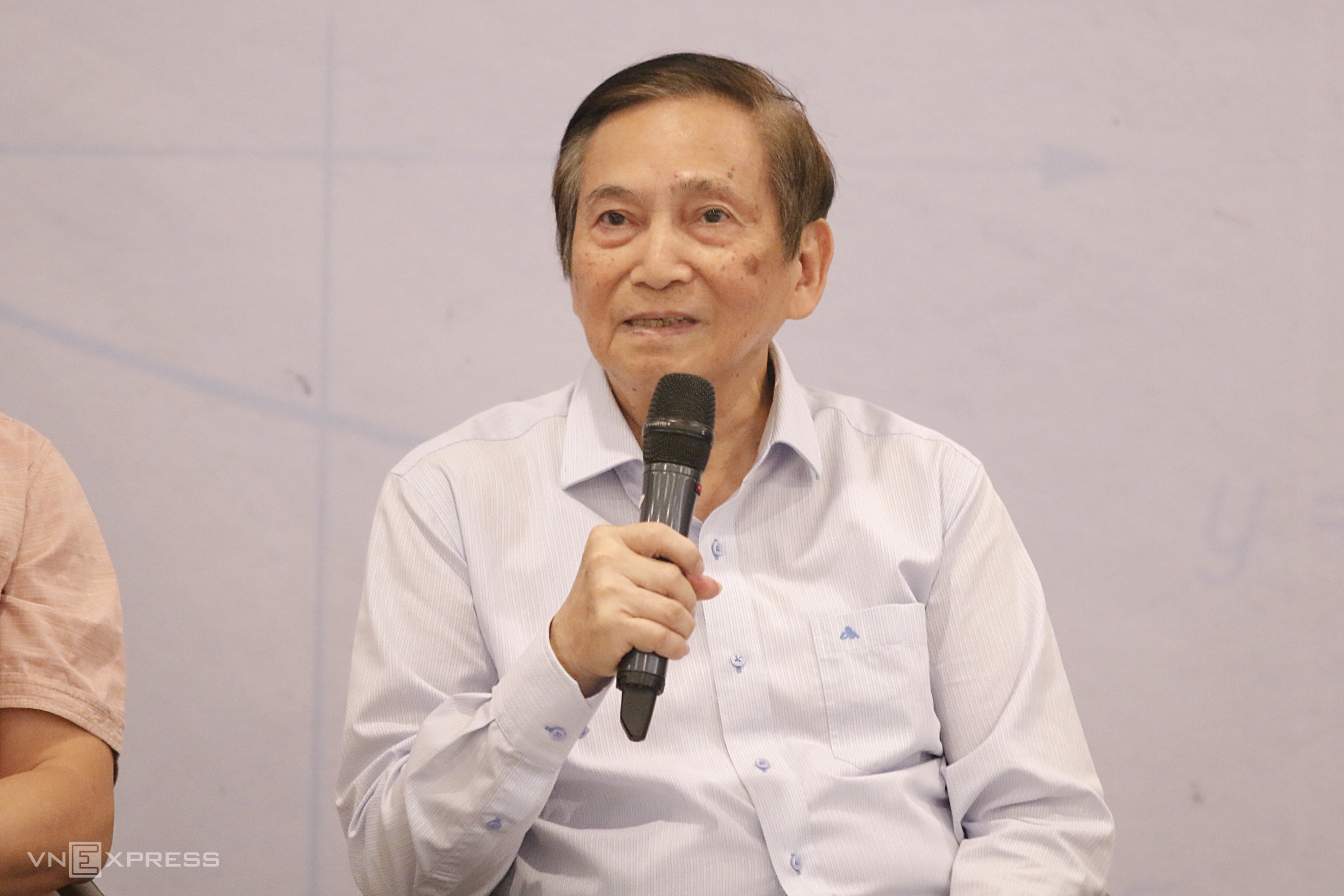 |
Professor Ton Than at the seminar on 2/8. Photo: Thanh Hang |
Professor Ton Than at the seminar on 2/8. Photo: Thanh Hang
Professor Ngo Bao Chau, Scientific Director of VIASM and a professor at the University of Chicago, USA, a former student of Professor Than, agreed.
Professor Chau recalled that in middle school, Professor Than never assigned overly difficult problems but emphasized clear presentation. Professor Chau later realized that mathematics is not just about solving complex problems but also about communicating solutions and thought processes effectively.
The solution, according to Professor Chau, is for teachers to focus on fundamental concepts, encouraging student thinking, reasoning, and creativity, rather than rushing into complex techniques and tricks.
"Computers can solve complex problems, but understanding requires human intellect. Grasping the underlying principles is crucial," Professor Chau said.
Professor Ton Than advocated for improved teacher training, avoiding a formalistic approach. He suggested that the Ministry of Education and Training and local authorities utilize experienced educators, consult research on innovative teaching and assessment methods, and organize focused training sessions for teachers to share best practices.
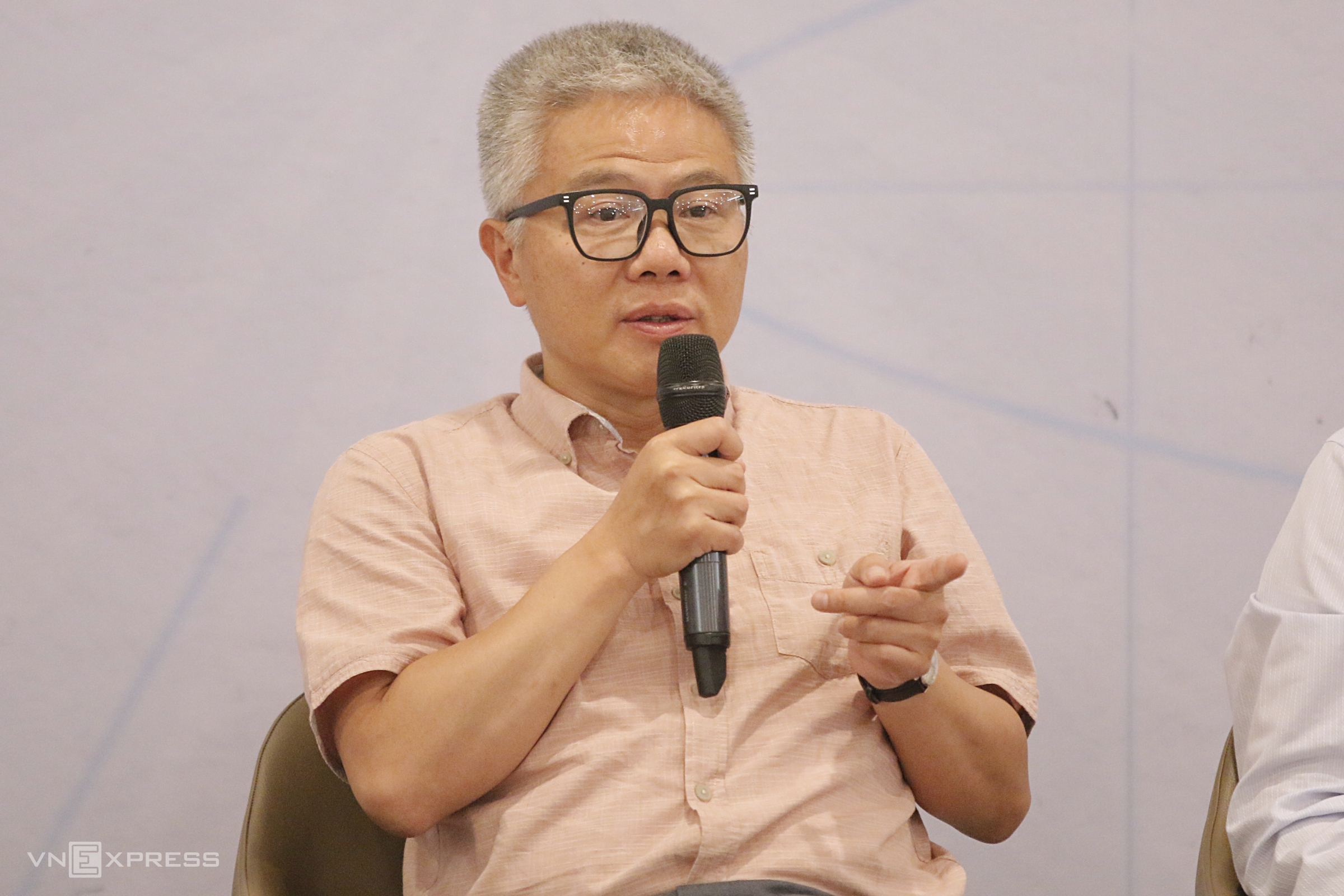 |
Professor Ngo Bao Chau at the seminar on 2/8. Photo: Thanh Hang |
Professor Ngo Bao Chau at the seminar on 2/8. Photo: Thanh Hang
Dr. Tran Nam Dung, Vice Principal of the High School for the Gifted, Vietnam National University, Ho Chi Minh City, believes that with the rise of artificial intelligence (AI), teachers cannot rely on traditional multiple-choice tests and technique-focused problems. Simply arriving at the correct answer is no longer a reliable measure of mathematical understanding. Dr. Dung encourages students to explain their reasoning and steps for solving problems.
Ta Ngoc Tri, Deputy Director General of the Department of General Education, Ministry of Education and Training, emphasized the need to shift the focus away from achieving high scores or winning awards.
"I've heard stories from Professor Ngo Bao Chau and other renowned mathematicians; they didn't pursue math for national or international competitions. Learning should stem from passion and interest, and when opportunities arise, we should strive for excellence," Mr. Tri said.
In mid-July, at a conference on the national key program for mathematics development from 2021-2030, Deputy Minister of Education and Training Nguyen Van Phuc stated the Ministry's goal of placing Vietnamese mathematics among the world's leading nations by improving the quality of high school education and integrating AI into math teaching and learning.
Thanh Hang



